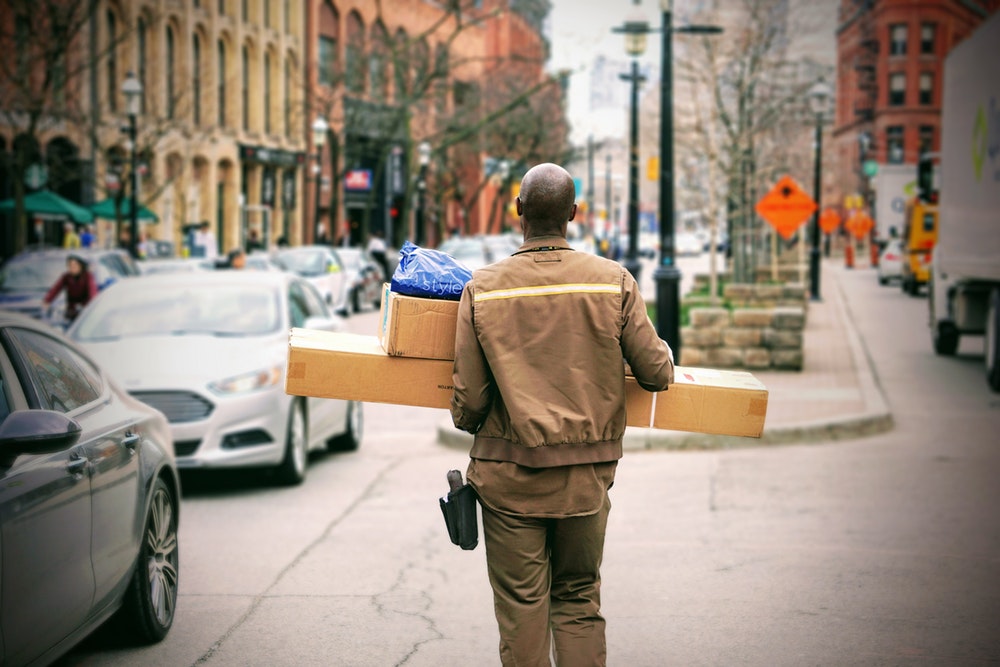Online Consumption and Mobility Practices: Crossing Views From Paris and Manhattan
The NYU Rudin Center for Transportation and 6t-research office have published the results of a large-scale exploratory survey on the consumption and mobility practices of the population of Paris and Manhattan (NYC).
The survey – which can be downloaded below - aims at comparing online consumption practices (both for food and non-food related items) of Parisians and New Yorkers (focusing on Manhattan residents), focusing particularly on:
- Identifying the profiles of e-consumers;
- Singling out the determinants of online consumption, notably in a context where express and instant delivery are developing rapidly;
- Identifying the characteristics of at-home meal delivery;
- Estimating the impacts of online consumption practices on mobility practices.
A survey analysis was conducted online based on a sample of 2178 Paris and Manhattan residents. The New York study surveyed individuals in dense neighborhoods, including Manhattan below 125th Street and downtown Brooklyn. Results were compared to Parisian neighborhoods of similar densities.
Key findings:
Non-food related online consumption: a widespread practice in NYC and Paris
- In 2017, 97% of Manhattan and 95% of Paris respondents bought a non-food related item online. New Yorkers make online purchases significantly more often than Parisians;
- In both Manhattan and Paris, more than one e-consumer out of two opts for at-home delivery;
- The pickup point as a French singularity: 1/5 Parisians chose this delivery method, compared to less than 1% of New Yorkers.
A boom in express deliveries in Paris and in NYC:
- 37 % of Manhattan residents and 26 % of Parisians and use an express delivery or collection option, such as Amazon Prime Now.
- 14% of Manhattan residents and 9 % of Parisians select instant delivery as their delivery method.
Online grocery shopping is primarily about saving time.
- About three quarters (73%) of Manhattan residents and more than half of Parisians (51%) have already shopped for groceries online.
- The purchasing of groceries online does not imply the alltogether disappearance of in-store purchasing practices, but rather a fragmentation of grocery shopping practices.
At-home meal delivery: apps as facilitators of a growing activity.
- 90 % of Manhattan residents and 67% of Parisians and surveyed have already ordered a meal and gotten it delivered to their home, workplace or place of study.
- The use of food ordering apps is as common amongst Parisians and New Yorkers who order meals (76% and 75%, respectively).
- Impacts: 23% of Manhattan residents and 15% of Parisians eat out at restaurants less often than before they started using a meal-delivery apps.
To mitigate the congestion and environmental challenges presented by the growth of delivery-based shopping, the report authors recommend:
-
Optimize curb uses: Curbside deliveries, which occur throughout daytime and evening hours, must compete with personal vehicle parking and ride pickups and dropoffs. In front of building entrances, parking must be eliminated, and dedicating loading zones for freight loading and unloading and for-hire vehicle uses should be established. This redesign will meet the competing demands of a modern street.
-
Encourage efficient delivery modes: To reduce freight and personal vehicle traffic, cities must legalize and encourage efficient delivery modes, including electric delivery bicycles and tricycles. These vehicles are already in use in several large cities and have reduced travel time and street congestion.
-
Employ existing vehicles: New York’s ample supply of taxis and for-hire vehicles can be used to deliver goods and meals for additional income and efficient use of vehicles already on the street.
A full study report and an executive summary are available for download below.
The NYU Rudin Center for Transportation's participation in this research was sponsored by C2SMART.
Many thanks to individuals who provided feedback and discussion about the report:
- Joseph Chow, NYU C2SMART
- Alison Conway, City University of New York
- Leah Flax, 100 Resilient Cities
- Diniece Peters, NYC Department of Transportation
- Michael Replogle, NYC Department of Transportation
Image: Unsplash
